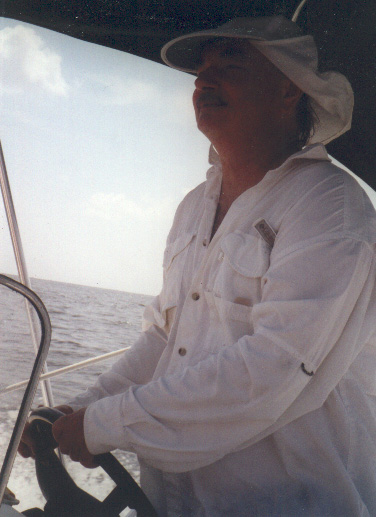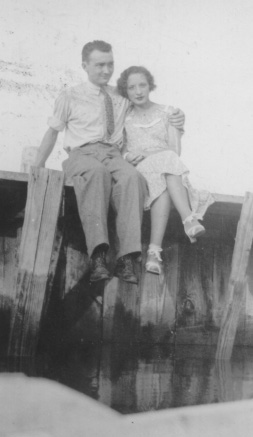 So what motives lie behind my beliefs?
So what motives lie behind my beliefs?A statement of direction.
motives | change | education | fear | closing
Deep Cover:
If you have come this far, you deserve to know some personal information, not available on Face book ™.
 So what motives lie behind my beliefs?
So what motives lie behind my beliefs?
When I started to school the scientists said that planet was dead, (and not just dying a slow death from our pollution). We learned it was an inert mass of atoms and atoms were little planets surrounded by their electron moons, and that the sun was something to tan your skin. We were told that there were two kingdoms of life: plants or animals. We memorized that God made me to know love and serve him forever in heaven. Our weekly Church worship was in another "dead" language conducted exclusively by men. When we traveled to the market, darker skinned people sat at the rear of public buses. Women like my aunts got married young and raised families, while men alone went overseas to fight wars. Our television was transmitted in black, white and shades of grey, radio stations played rock 'n' roll and that was different from "easy listening." Airplanes had things called propellers on their wings, and water was something to drink from a fountain, or put in a mixed drink, or run a fishing boat over, or swim in, not a commodity to purchase in a plastic bottle.
Today, fifty years later, people have far more money and leisure time than in the 1960s even with this, the greatest depression in our history, now. Today the sun is a source of electricity generated ironically by the same sort of radiation that raises our risk for skin cancer. Our drinking water is filled with pesticides, endocrine disrupting chemicals, nitrates, and even feces from some other creatures if not from us. Scientists tell us the planet is–if not alive–not quite dead either. Those atoms are really quarks–if not strings–and enable the sun to shine and electrons to move at light speed. The nucleic acids that persist in the core of cells are not precisely the "secret code of life," but act in concert with RNA, proteins and plasmids to populate the world with variety.
Aero planes have been replaced by jets and ladders to get into aircraft have been replaced by "jet-ways." Cans of lard or Crisco for frying have been replaced by "extra virgin oil". No one we knew ate meat on Fridays and Lent was a sort of middle class Christian "Ramadan" except we had no idea what holy Moslem's believed, let alone observed in their devotion to a sacred ideal. Cars were heavy, big inside where you sat on couches, and burned lots of gas per mile traveled. Any car's back seats were a special place of ecstasy, denied to us teenagers by schools, motels and especially policemen. Yes the police were exclusively composed of men. Women taught grade school, or were maids, nurses, and telephone operators.
 Why do I tell you this? Well because my parents (pictured here sitting on a jetty) encouraged me to become open to the world of travel, new experiences, and to learn well all that I could master. By learning, I had to change my mind based on overwhelming evidence that countered my childish experiences, parochial upbringing, or prevailing social biases. Standing against widespread prejudices is hard to endure. It is even much harder to change people's perspectives without changing your own. But the evidence is clear that what we know of the world is subject to repeated contradictions due to new discoveries.
Why do I tell you this? Well because my parents (pictured here sitting on a jetty) encouraged me to become open to the world of travel, new experiences, and to learn well all that I could master. By learning, I had to change my mind based on overwhelming evidence that countered my childish experiences, parochial upbringing, or prevailing social biases. Standing against widespread prejudices is hard to endure. It is even much harder to change people's perspectives without changing your own. But the evidence is clear that what we know of the world is subject to repeated contradictions due to new discoveries.
For example, it is far easier to believe that Jesus loves me so much that he died for my sins. Or to trust that mother Mary comforts me is better than being constantly uncomfortable. But these stories are not as convincing, despite their seductive appeal, as the challenges of discovery and revising our beliefs.
Another instance of comfortable–but erroneous–thinking is: "I feel it more rewarding to think that I live in the finest –most free– and strongest country in the world than to think that the Netherlanders are smarter about the planet, the Norwegians more generous with sharing their wealth, the Japanese more hard-working and that east Indians are more spiritually diverse." Comfortable ideas only serve keep us from realizing the world is more than we can ever imagine.
I had to learn that so many other religions such as Zen Buddhism are more tolerant of other people's faiths than the Christianity that I was taught to believe. Nationalism–like national religions–is just another mental sickness of the world in which I grew up. What makes prejudice worse today is that enough people have not outgrown narrow nationalistic intolerance and now openly espouse nativism, fostering hatred of foreigners, and even advocate race superiority.
You can probably tell that I am in the habit of seeing, and trained to see, the world differently from everyone else. That is because having studied with Garrett Hardin, I can imagine a world more complicated than we can think because reason has its limitations in the face of nature's capacity to deceive us. Having known Ernst Mayr for many years I can appreciate how we must change our mind to fit the biological conditions that persist, despite our ideas to the contrary.
While being on the margin of imaginative credibility (the Earth after all is alive and it is sustained by billions of bacteria, as are we! ) and often being misunderstood, I am comfortable with my distinctly minority view.
Why? I think because I can see for myself, read what I must, and put old information together in new ways in order to see what is on the horizon.
My motives may be so because I wish to foster wisdom in you, due to how tolerantly I was raised.
How?
Well, because Emory University altered my life and prepared me to do research. I succeeded, only barely at the University of California because I had professors who taught me to evaluate the results of my research into why something may have occurred the way it did–as opposed to the way I wanted it to occur, or thought it might have happened. At Emory I met speakers such as John Kenneth Galbraith, or Robert Theobald who were as accessible as my teachers Bell I. Wiley, James Rabun, or James H. Young.
The University of California at Santa Barbara changed my way of learning because it wedded intellect, to changed emotions, and an abiding understanding of the Earth. I discovered that this planet, its preternatural ocean, and wild things were my neighbors and not my adversaries. I learned from investigations that we all have a duty to repair the world we are destroying. The new synthetic environmental science that I learned there from Wilbur Jacobs, Garrett Hardin, Roderick Nash, Carrroll Pursell, Patricia Cohen, Robert Kelley, and Lawrence Badash demanded that we know the world more deeply in order to repair the damage. In guest lectures there I was able to meet James Watson, Richard Leakey, Joel Hedgpeth, Hazel Henderson and Amory Lovins. People who were not afraid to live what they knew to be true and work to improve the world. I learned there that knowledge without action is a missed opportunity to stretch.
The world has built itself not just for me to understand but for creatures to encounter our disturbing presence in the world as a sort of perennial partnership of give-and-take. I learned that from Garrett Hardin, as his teaching assistant,
where I also discovered that I relish telling people what to examine and decide for themselves the value of our commitment to renewing the Earth.
I am like some insignificant marmot always going far afield to find what I need to sustain my curiosity, to feed my lust for overcoming ignorance, and fatten my desire to know what is really difficult to comprehend.
This essay is all too self-congratulatory, so I must admit I am scared. So fright motivates me to put a lot of things between me and my fears. By that I mean putting intellectual knowledge before my dread of death. I am scared of my feelings. If you reveal to another that you are intellectually curious and want to make sense of the world, they can ridicule your views. I am afraid to say that I love that quality of curiosity and drive in you and others. We live in a repressive society, so I have come to fear emotions and seek an abiding refuge in what I refer to as the "police of the cerebral cortex," or my rationality and logic.
Although, I fail at many of these endeavors to articulate how we really know this world, I do pursue an understanding of evolution, biology, ecology, and history because I am both interested in and more deeply addicted to knowing what has recently been discovered about life, this cosmos, and our species.
When in the ninth grade I won the school's current events award during the time after President Kennedy was assassinated, based on a test. But I also won because I was curious to know why the world had failed and was plunged into an unending war. The Viet Nam War lasted for all of my formative years and influenced a generation. I think that I remain in a state of lust for any new tidbit, any recent discovery, or any crucial finding that challenges my preconceived notion of reality because we learned only after the war was over how mistaken our views of history, nationalism, and ethnic prejudice really were. The nation had lived a lie for which so many people died.
I thank my parents for their love and tolerance, both of my grandmothers for my straight teeth and my first microscope, my many fine teachers for recognizing in me that I might possess some capacity and gift. My wife and I have created a little life of unending free inquiry because we love in one another the need to know and improve the world.
She has encouraged me to share these few gifts of reason, devotion, and service with others so we may seek new information and always open our minds and hearts to changes that can improve the world and our society.
I am still in search of that evanescent gift, perhaps you can help me find what it is?
I think you can, because I trust your intellect, admire your drive, and remain devoted to your free discovery.
While I barely survived my teenage wasteland, and inherited biases, I hope you may succeed where I have failed.
Cheers.
Tree planter, & house builder.
motives | change | education | fear
25-Mar-2007, 24-December-2008, Summer 2011..
Ecology, Population, Charles Darwin, Aldo Leopold, History, Nature, Photographs, Science, Technology, Water, Wilderness, Words